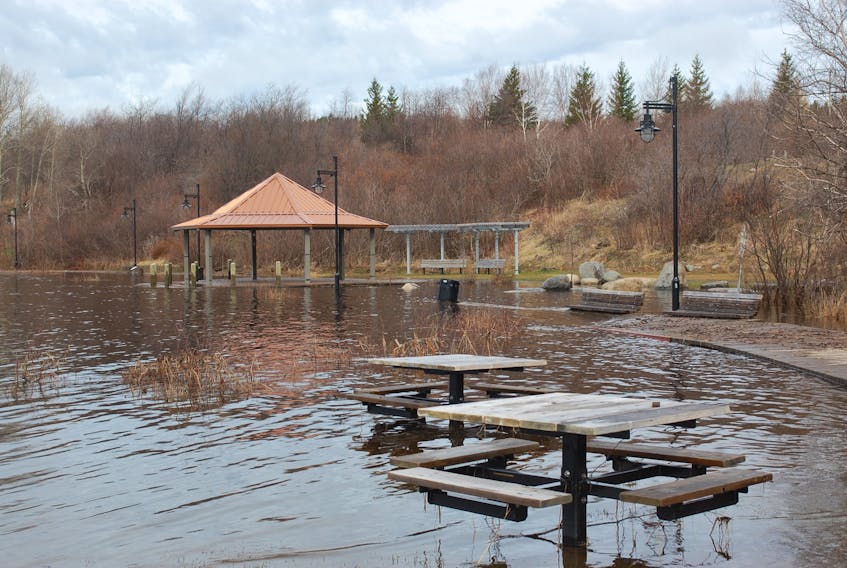Conor Curtis’ masters' thesis in environmental policy comes with some advice for the provincial government — in short, to give its climate change policy some teeth.
“One of my interviewees put it best — you know, for years they often heard, ‘We have a policy, we have a climate policy, we have an action policy.’ Great. And he said, ‘Do you have any funding?’ And they say, 'No.’ ‘Do you have any targets?’ ‘No.’ ‘But you have a policy?’”
His research involved a literature review on the subject, data analysis, a case study using the Town of Glenburie-Birchy Head-Shoal Brook, and interviews with people such as provincial government employees and climate change researchers.

The 27-year-old studied the social justice implications of climate change in the province, such as how it will affect already existing inequalities between people.
He said the biggest takeaway is that the people most likely to be affected by climate change in Newfoundland and Labrador are Indigenous people and resients of rural and remote areas.
He also identified provincial government-level policy changes which could help to alleviate some of these implications.
Four changes he recommended:
• Attach time-bound, measurable targets to action items in the 2019 policy document, "The Way Forward on Climate Change," and provide a publicly available annual progress report on the objectives.
• Implement regional climate change co-ordinators who can help address unique localized challenges.
• Develop a communications plan with specific objectives to increase awareness of climate change effects on rural communities.
• Create a formal advisory committee that will meet with municipal governments regularly to address approaches to multi-level government responses to climate change.
“I think it’s very important for the provincial government to look at those recommendations, and to consider how they can incorporate social justice as an issue into their climate policies in an integrated way,” said Curtis.
“I think there’s already overtures to this in the last climate action plan, but one of the things I really want to see is specifically how objectives are going to be met, and how is communication going to take place with communities in a way that is reciprocal, two-way communication?
“And how can you ensure that those local specifics that are relevant to each community are being accounted for? And I don’t see that as being possible unless you really do have people on the ground working with the communities, and vice versa.”
Social justice often overlooked
Curtis’ master’s supervisor was Kelly Vodden, associate vice-president of research and graduate studies at MUN’s Grenfell Campus.
She said his particular focus on the social justice implications of climate change is important because it’s often been overlooked in other research that’s been more focused on physical effects.
“There are some similarities in some of the types of impacts we see across the province, but really, the particular issues that communities and regions are facing in their local areas are important, and the particular circumstances in those communities,” she said.
“(Curtis) points to the importance of having that local-level understanding, but also, understanding that that’s influenced by provincial and federal initiatives that help communities to respond.”
Vodden called it a pressing issue for the province.
“Rural and remote communities are often the communities most affected, but sometimes, in some ways, least able to respond. So, they may be cut off — the road might be cut off, for example, their access to health or other services … And they often don’t have the same level of human or financial resources to be able to adapt or to react to something like an extreme weather event.”
That said, both Vodden and Curtis point to strengths of rural Newfoundland — the localized knowledge of people who have lived in an area for a long time, great social cohesion and volunteerism.
Curtis said the idea of helping a neighbour who’s in trouble is something that should be practiced more often on a global scale, but that’s not always the case.
“I think that in terms of resiliency and climate change elsewhere, there’s something to be learned from communities in Newfoundland and Labrador in terms of the way they already deal with environmental issues, or they already deal with inequalities in their community to try to even those out.”









